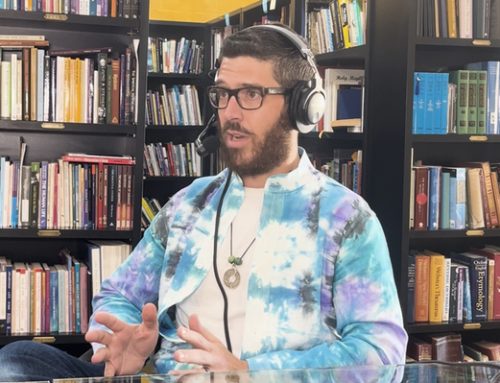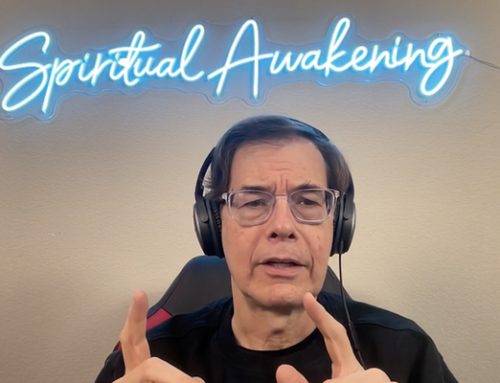A Beautiful Wednesday to You!
I had a busy, productive day yesterday and I hope you did too.
I missed my tai-chi session in the morning due to the need to meet deadlines, but took it in stride. I got plenty of breathing and practice being present in my workout yesterday.
I did some heavy lunging after warming up with clubbells. Then I did some front squats and Swiss Ball forward ball rolls.
When I got home, I went out into my rock garden in the dark and wet after the rain had just stopped and did a half an hour of so of free-flow movements combining breath work and toning to tune myself up for the evening. A little mindless cop show and off to bed!
We have zen In The Garden starting Friday, so I ordered a new load of rocks to give us some bigger stones to play with.
I also ordered some beautiful flat stones so I can create a beautiful pathway of stone into the garden, which Penny is excited about.
WHAT IS THE KNOWLEDGE OF LOVE?

Rumi answers this question in a beautiful poem:
What is a knowledge of love?
Giving up the desire of the heart.
It is to become blood.
It is to drink heart’s blood.
To wait at the door of fidelity with the dogs.
The lover is the one who sacrifices his life.
For him, there is no difference
Between life and death.
Go ahead, O Muslim, take care of yourself.
Stay healthy and happy.
Struggle to become devout.
Because these martyrs cannot wait to die,
They are in love with annihilation.
You try to stay away from mischance and trouble.
Yet, their fear is to become without trouble.
Put a handkerchief on your hand
At the day of Ashura.
You don’t have the power or strength
To go to Kerbela.
Ref: Mevlana Celaleddin Rumi, Divan-I Kebir, Meter 12, p. 132 Poem 74, Translated by Nevit O. Ergin
[amazon-product align=”left”]188799114X[/amazon-product]
Commentary by Paul Chek:
As I often do, I will offer my commentary on what “I feel” Rumi’s message is in this poem.
Please don’t take my comments as literal translations, for there is no such thing as a literal translation of poetry.
My commentary is only a gift to those that are interested in my own authentic feelings as to what Rumi is saying, which are based on many years of metaphysical study as well as extensive study of Rumi’s poetry and teachings.
What’s more important than my commentary is what rises in you when reading his words. Hopefully, my commentary gives you another perspective from which you may gain a broader context within which to interpret your own feelings. My comments will begin after each verse with PC:
What is a knowledge of love?
Giving up the desire of the heart.
PC: Rumi explains what he means by “Giving up the desire of the heart” below when he says:
“You try to stay away from mischance and trouble.
Yet, their fear (PC: The Martyrs) is to become without trouble.”
In essence, he is referring to the “desire of the heart” as “the desire to live”, which is only present in those that fear death; death being a belief of the end of life.
Rumi is saying essentially what the Buddha said when encouraging people to give up (object) desires, for such desires create bondage and are highly linked to our social constructs of rank and order; those that “have lots of money, fame, so-called success exemplify having lots of desires, which creates the illusion of safety, security and happiness.”
Yet, on closer analysis of those that apparently “have”, you typically find that they are even more slave to their “hearts desires” than those that apparently “have not”.
It is to become blood.
It is to drink heart’s blood.
To wait at the door of fidelity with the dogs.
PC: Here, Rumi is answering his own question, “What is a knowledge of Love?”
“It is to become blood.” Blood is the essence of life. Life is the means by which we become conscious of, and worship our “Being”.
“It is to drink heart’s blood.”
Here, if you think of the word “heart” as interchangeable with the word “God”, you will make a step in the right direction; whenever you eat anything, plant or animal, you are “drinking heart’s blood.”
“To wait at the door of fidelity with the dogs”, is a metaphor that implies that just as a dog is obedient to its master, one who has a knowledge of love knows that their own soul is the Master (the God) within.
Such a person waits at the door of fidelity (with the dogs – the ego), and doesn’t take direction from their ego-mind, which operates on the principle of “lack, and exclusion”.
They don’t try to determine what is right or wrong, good or bad, for such decisions can’t be genuinely made by an ego built of ideas largely passed on by others with ideas that also reflect their own misunderstandings of the question, “What is a knowledge of love?”
The lover is the one who sacrifices his life.
For him, there is no difference
Between life and death.
PC: Here Rumi gives a very direct answer to his own question.
We are all expressions of THE ONE. Our ego-construct exists consciously in a world of duality, yet, our soul is the Greater sum of the parts.
Once one has had authentic experiences of Divine Union, it is evident in their actions in life that there is no difference to them between life and death. They don’t make (moral) decisions to try and “avoid” death.
Therefore, their egos are not shadowed by the illusions inherent in the social mind, which acts as a mind virus for the unenlightened.
God has no attachment to this ego-game, obviously, for it creates both time and experience, allowing god to find God, which is the gateway to GOD realization, which is the end of all religious differences and death to the god exemplified in and as the individual ego.
Go ahead, O Muslim, take care of yourself.
Stay healthy and happy.
Struggle to become devout.
PC: Here Rumi is telling people that to struggle to care for yourself and do the things you “think you have to do to be happy” (which for the typical Muslim, Christian, practitioner of Judaism, etc, can only happen within the confines of the dictates of their religious commandments), is but a “struggle to become devout.”
This is akin to doing what the teacher tells you in hopes of getting gold stars and becoming “special”, favored by the teacher!
(Below is clip on YouTube titled: 10 Commandments Or Spirituality where I discussed, compared and contrasted Christian, Atheist and Native American “commandments,” which is Part 1 of a series I did last year)
httpv://youtu.be/kguLlZ5XkIk
Rumi continues to address this behavior below.
Because these martyrs cannot wait to die,
They are in love with annihilation.
PC: Here Rumi is saying that the enlightened have risen above the limited consciousness of division and limitation created by the ego-mind and all it’s programming.
They are conscious of what is beyond social construct and therefore, have no fear of leaving the Matrix! (Red pill, or blue pill?)
You try to stay away from mischance and trouble.
Yet, their fear is to become without trouble.
PC: Here is what I was referring to above. “You try to stay away from mischance and trouble.” Yet, who’s ideas of what mischance and trouble are you enacting as your own?
If you had only the experience of love, without all the dictations of religion, individual and group ethics and (so called) morals imposed upon your child mind, would you really see “mischance and trouble”, or would you see god exploring God as a means of GOD realization?
Creation has no value and could not exist without destruction; could you build a house (creation) without destroying the tree?
Referring to the enlightened martyrs, Rumi says:
Yet, their fear is to become without trouble.
This can’t really be taken literally, as prose. They don’t really have any fears, thus the term “martyr” – one who gives of themselves for a higher cause.
If there were no others in trouble in the world, who would they share their enlightenment with? Who would they gift their love to as a living example?
If there were no sick people, what value would there be in being a (spiritual) physician?
Put a handkerchief on your hand
At the day of Ashura.
You don’t have the power or strength
To go to Kerbela.
PC: Referring to “Ashura”, which the notes to the poem describe as follows:
The tenth day of Muharrem. In 680 A.D. the grandson of the prophet, Iman Tuiseyn was martyred by Yezed. The day of mourning at Kerbela.
Kerbela is a city in Iraq. I’m not sure what putting a handkerchief on your hand may mean in Muslim custom.
I suspect when he says, “You don’t have the power or strength To go to Kerbela.”, he’s implying that those stuck in the dictates of “trying to do good” are unlikely to have the strength to be present with an enlightened man of God while being killed, for they see only death and loss, not the liberation that the martyr experiences as their own enlightened reality.
One of the key underlying messages Rumi is sharing here is that when we try to do good, we are at once giving life and value to the opposite (of good), not good or evil.
In the King James Version (KJV) Bible, one can read (Isaiah 45:7): “I form the light, and create darkness: I make peace, and create evil: I the LORD do all these things.”
If you replace the word “light” with “yang” and darkness with “yin”, and “peace with order and “evil” with chaos, you see that all such experiences are the natural expression of the meeting and marriage of the two elemental forces that create the universe.
Said another way, “yin” is dark and empty any “thing” and yang is full of every “thing” (illuminated within yin).
What we label as good or evil are but labels for the process of relationship by which time and experience are created.
I’m reminded by a statement once made by Paramahansa Yogananda speaking about God during a lecture.
In paraphrase, he said, “When you go to the movies, don’t you like a little shoot-em-up, a little sex, some mystery, some action!?”
Of course you do!and so does God!
So there you have it!The evidence requires no proof!
Love and chi,
Paul Chek




